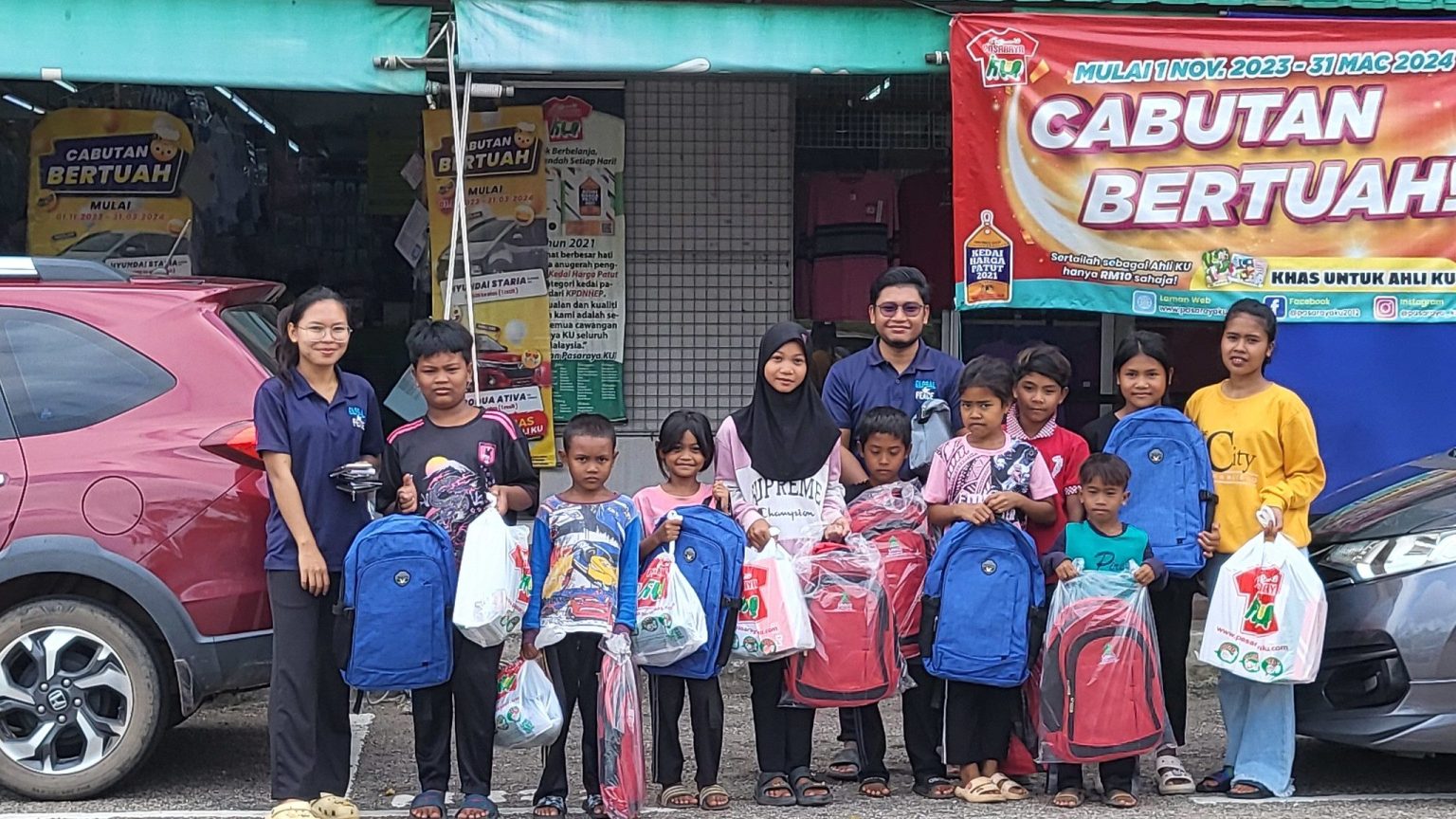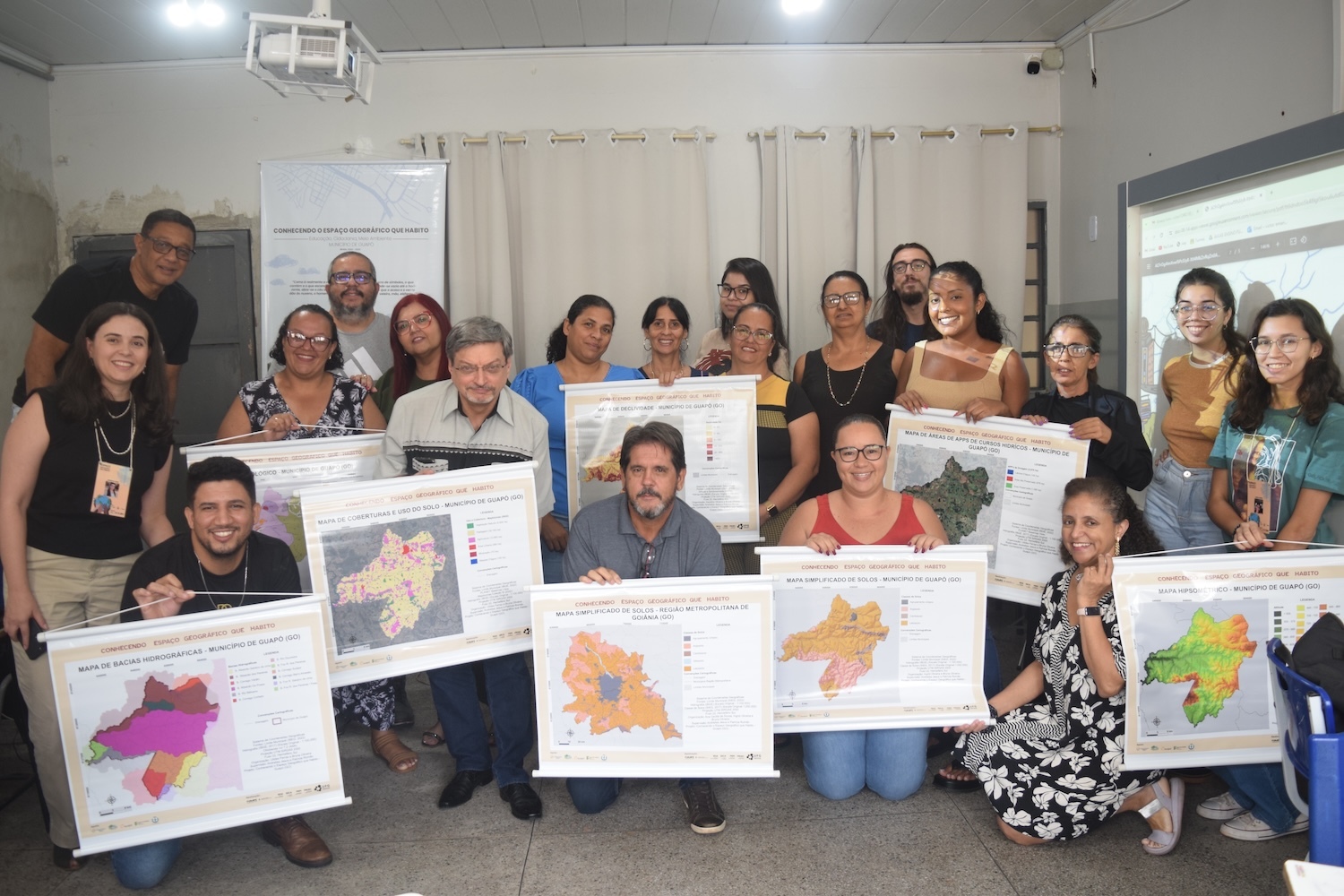The following story is the second in a three-part series covering the captivating experience of Russian-American Vladimir Somov’s solo trip to a country shrouded in mystery and controversy: North Korea. Somov is a first-generation American descended from parents who grew up in the Soviet Union before moving to the United States. Equipped with fluency in both the English and Russian languages, he was the first American high school student to visit North Korea in the summer of 2019 through a Russian airline. Click HERE to read Part 1.
My second day in North Korea was the day after President Trump’s unexpected meeting at the Demilitarized Zone with North Korea’s leader Kim Jong Un. President Trump had been at the DMZ on the southern side only the day before. It was surreal.
There was a souvenir shop at the DMZ where they sell propaganda posters. I was told that even a year prior to my trip, they used to sell a lot of anti-US propaganda posters featuring images of North Korean missiles setting the Capitol on fire, or North Korean soldiers smashing an American missile. However, the guides explained that they stopped selling, producing, and displaying them after Trump and Kim’s meeting in Singapore in June of 2018.
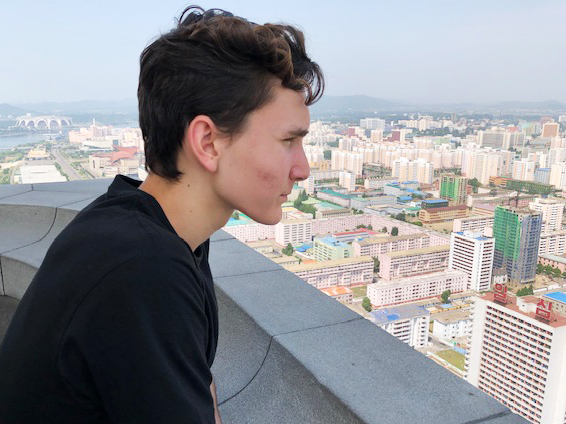
Vladimir viewing both Koreas from a balcony outside (Photo Credit: Vladimir Somov)
The biggest surprise to me was that there was little technology and virtually no connection with the outside world. I found myself constantly trying to take out my cell phone to check it but every time I would quickly come to the realization that I had no data and no Wifi until my return to Russia. Interestingly, however, when I was at the DMZ on the North Korean side, standing at the balcony overlooking the South Korean side, all of a sudden, my iPhone surprisingly started to make short beeping sounds—it was receiving messages! I looked at it in shock and realized that it was roaming and somehow catching a weak signal from a South Korean provider.
I asked my guides if there was any way in which I could access the online world, and they said that I could either go to a specific hotel and pay for WiFi, or I could buy a temporary sim-card: an option only available for foreign visitors. I did end up visiting that hotel, but the WiFi was slow and most social media apps were blocked. For the first time, I felt isolated from the rest of the world because I had no means to communicate with my parents or any of my friends. I decided to make the most out of my trip without my cell phone.
An Alternate Reality
The International Friendship Exhibition House, also known as the Museum of Gifts, displaying more than 200,000 gifts from 184 different countries for Kim Il Sung, his son Kim Jong Il, and the current leader Kim Jong Un. For North Korea, one of the most isolated countries in the world, I thought that having an “International Friendship Exhibition Hall” itself is a bit of a contradiction.
Another strange experience was a visit to the Victorious Fatherland Liberation War Museum, a history/military museum dedicated to the Korean War. It was fascinating to experience life inside an alternate reality. The museum tour included mostly some obvious propaganda and anti-American rhetoric about how the evil USA started the Korean War and was totally defeated by the valiant Korean people.
Uniforms and Uniformity
By my third day in North Korea, I was itching to visit a school in Pyongyang. It was not “on my agenda,” I was told, so the guides had to seek approval from the Foreign Ministry and other governmental entities. But I was so excited to get a chance to talk to students my age and to learn more about their daily lives.
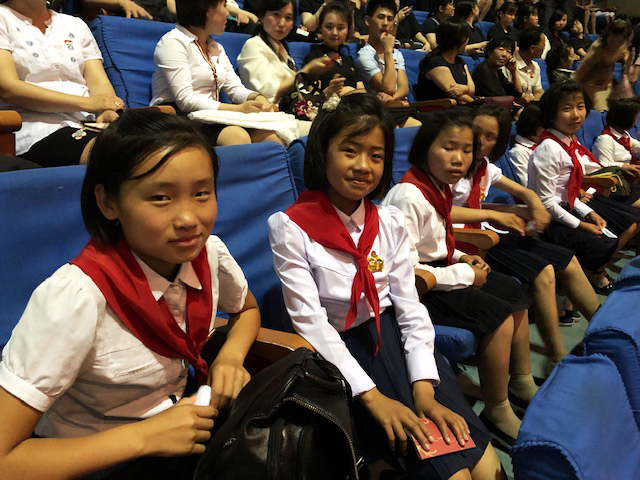
Female students preparing for a special concert (Photo Credit: Vladimir Somov)
A number of the teenaged students (just female students, in fact) prepared a concert specifically for me and visiting Chinese tourists. Several female students played traditional Korean music on drums, guitars, and keyboards, while others danced to the music and sang traditional Korean songs. All-female students wore the same uniform—a black sleeveless dress over a white shirt and the same black shoes—and they even sported identical haircuts. They placed plastic flower wreaths on our heads and I noticed during the performance that there was not a single mistake. No one got the words wrong; no one missed a beat; no one played a wrong note on an instrument, and no one messed up the complicated choreography for each song. While a minor example, to me the concert reflected the seriousness of North Korea’s regime.
Immersing myself in the school experience, I was walked into the classroom by one of my guides and was placed in the teacher’s spot. It was weird, to say the least. The students were all rather quiet. When we entered, they immediately took their places at the desks without any prompts. That being said, I was surprised to see that the students were somewhat similar to my own classmates in the US. They chatted amongst themselves, wandered around the classroom, and laughed, though quietly. They were doing things I expected teenagers to be doing except that they were significantly quieter than any middle or high school kids I have seen.
The guides asked me to make a speech-presentation and then to ask students some questions.
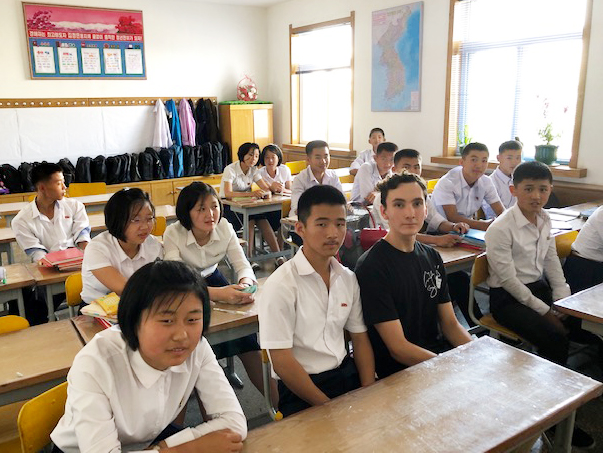
Vladimir with North Korean students in their classroom (Photo Credit: Vladimir Somov)
After some back and forth about sports in which students enthusiastically described the importance of basketball—beloved by “Dear Leader Kim Jong Un”—I asked them what they thought of other countries like Russia and the United States.
The response was somewhat expected but still surprising.
They all said, “Russia is fine, no problem” and without hesitation said, “US is bad, really bad.”
The uniformity of opinion was staggering. They knew next to nothing about both countries of course, but that they were essentially one opinion without variation (or detail), was what I found difficult to comprehend. Unless of course, they towed the official party line and simply were afraid to offer any other opinion. Sad as the latter option was, it would at least have made more human sense. But I was never to find out which option was true with my guides next to me.
The story continues in Part 3: Worlds Apart
More on the Author
Vladimir Somov has traveled internationally from a very young age and developed a keen interest in foreign affairs, international relations, and politics. While bilingual in both Russian and English, he is also familiar with French and Korean. Somov is currently a primary researcher for an upcoming book on North Korea and US-North Korean relations by Dr. Tony Namkung, a prominent expert on North Korea and a White House advisor. He also works as a Junior Editor for his school newspaper and is the Founder and President of St. Albans School’s Russian-Asian International and Cultural Affairs Club.


